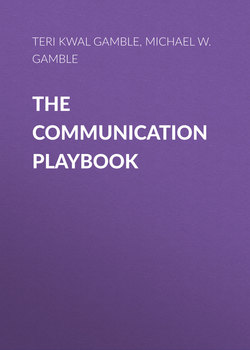Читать книгу The Communication Playbook - Teri Kwal Gamble - Страница 191
На сайте Литреса книга снята с продажи.
Politically Correct Language
ОглавлениеThe following definitions appear in Henry Beard and Christopher Cerf’s tongue-in-cheek guide, the Official Politically Correct Dictionary and Handbook:
Lazy: motivationally deficient
Wrong: differently logical
Ugly: cosmetically different
Prostitute: sex-care provider
Fat: horizontally challenged27
Are your connotations for the term politically correct language positive or negative? Do you define it as speech that is sensitive or speech that is censored?
According to Diane Ravitch, author of The Language Police, words that might offend feminists, religious conservatives, multiculturalists, minority activists, or members of other groups are routinely deleted from the textbooks used in U.S. schools because they are believed to be politically incorrect. For example, one textbook author rewrote Bob Dylan’s folk song “Blowin’ in the Wind” which had asked, “How many roads must a man walk down before you call him a man?” to read: “How many roads must an individual walk down before you can call them an adult?”28
Yet, like so many other words, politically correct language means different things to different groups of people. For some of us, being politically correct means making the effort not to offend by selecting words that show our respect for and sensitivity to the needs and interest of others. Politically correct language can help take the sting out of confrontations by blunting the sharpness of our words. For example, in the United States, over a period of time the word slow was replaced by the word retarded, which was then changed to challenged, next to special, and then to an individual with an intellectual disability. Similarly, over a half century ago, the defining term for persons of African ancestry has shifted from colored to Negro to Black, to Afro-American, to people of color or African American.29 When we use politically correct language, we reveal our sensitivity to the preferences of those with whom we are conversing.
For others, however, political correctness means that we feel compelled by societal pressures not to use some words—referred to as taboo words—because we believe that using them might cause others to label us as racist, sexist, homophobic, or ageist. For example, some years ago, a student in one Ivy League university was thought to be a racist when he yelled, “Shut up, you water buffalo” out a window at a noisy group of African American women. Still others view political correctness and sensitivity training as dangers to free speech. Which position comes closest to the one you hold?
Skill Builder
Political Correctness and Free Speech
The iGeneration (also referred to as Generation Z) includes those of us born after 1995. If you belong to this cohort, chances are you grew up in an era of protective parenting. You probably prioritize safety, both physical and emotional.30 Might a relationship exist between the desire for political correctness, the safety emphasis of iGen members, and the “safe-space” movement on our college campuses?
Some students today assert that it is their right to be protected from the expression of ideas with which they disagree, even campaigning for the firing of faculty members who offend their sensibilities and disinviting speakers whose points of view they disagree with.
Here’s the challenge: How do you balance this belief with the beliefs of others who say that the purpose of a college education is to experience diverse ideas and to encourage conversation among people whose perspectives differ? How can we have discussions about ideas if everything needs to feel “emotionally safe”? How can we change the perception that merely being exposed to and talking about ideas we don’t like can harm us?
